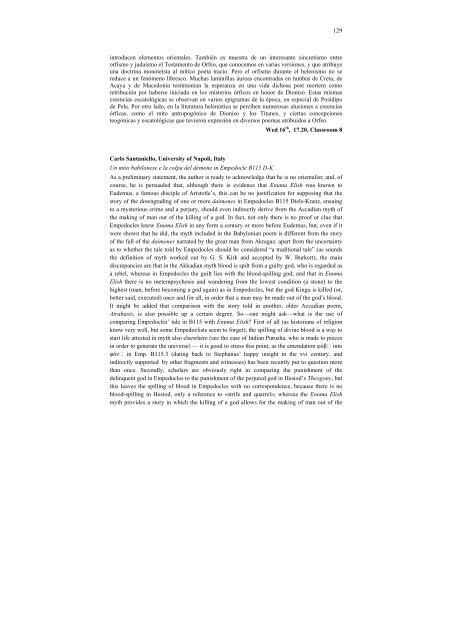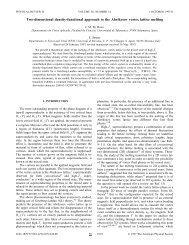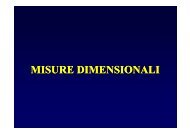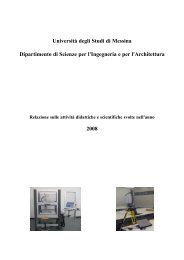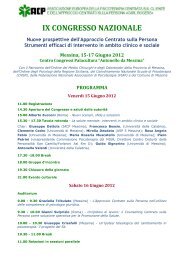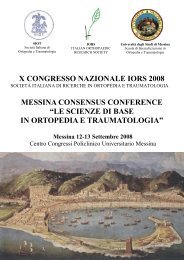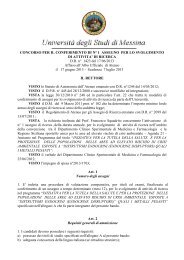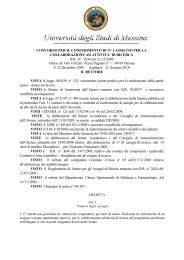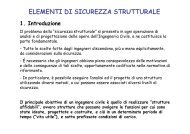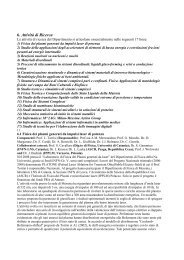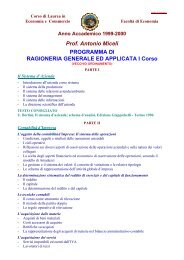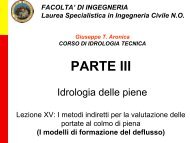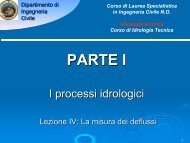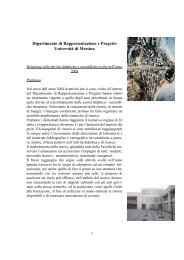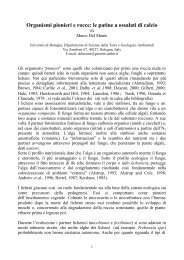PROGRAMME AND ABSTRACTS - Università degli Studi di Messina
PROGRAMME AND ABSTRACTS - Università degli Studi di Messina
PROGRAMME AND ABSTRACTS - Università degli Studi di Messina
Create successful ePaper yourself
Turn your PDF publications into a flip-book with our unique Google optimized e-Paper software.
129<br />
introducen elementos orientales. También es muestra de un interesante sincretismo entre<br />
orfismo y judaísmo el Testamento de Orfeo, que conocemos en varias versiones, y que atribuye<br />
una doctrina monoteísta al mítico poeta tracio. Pero el orfismo durante el helenismo no se<br />
reduce a un fenómeno libresco. Muchas laminillas áureas encontradas en tumbas de Creta, de<br />
Acaya y de Macedonia testimonian la esperanza en una vida <strong>di</strong>chosa post mortem como<br />
retribución por haberse iniciado en los misterios órficos en honor de Dioniso. Estas mismas<br />
creencias escatológicas se observan en varios epigramas de la época, en especial de Posi<strong>di</strong>po<br />
de Pela. Por otro lado, en la literatura helenística se perciben numerosas alusiones a creencias<br />
órficas, como el mito antropogónico de Dioniso y los Titanes, y ciertas concepciones<br />
teogónicas y escatológicas que tuvieron expresión en <strong>di</strong>versos poemas atribuidos a Orfeo.<br />
Carlo Santaniello, University of Napoli, Italy<br />
Un mito babilonese e la colpa del demone in Empedocle B115 D-K<br />
Wed 16 th , 17.20, Classroom 8<br />
As a preliminary statement, the author is ready to acknowledge that he is no orientalist; and, of<br />
course, he is persuaded that, although there is evidence that Enuma Elish was known to<br />
Eudemus, a famous <strong>di</strong>sciple of Aristotle’s, this can be no justification for supposing that the<br />
story of the downgra<strong>di</strong>ng of one or more daimones in Empedocles B115 Diels-Kranz, ensuing<br />
to a mysterious crime and a perjury, should even in<strong>di</strong>rectly derive from the Acca<strong>di</strong>an myth of<br />
the making of man out of the killing of a god. In fact, not only there is no proof or clue that<br />
Empedocles knew Enuma Elish in any form a century or more before Eudemus, but, even if it<br />
were shown that he <strong>di</strong>d, the myth included in the Babylonian poem is <strong>di</strong>fferent from the story<br />
of the fall of the daimones narrated by the great man from Akragas: apart from the uncertainty<br />
as to whether the tale told by Empedocles should be considered “a tra<strong>di</strong>tional tale” (as sounds<br />
the definition of myth worked out by G. S. Kirk and accepted by W. Burkert), the main<br />
<strong>di</strong>screpancies are that in the Akka<strong>di</strong>an myth blood is spilt from a guilty god, who is regarded as<br />
a rebel, whereas in Empedocles the guilt lies with the blood-spilling god; and that in Enuma<br />
Elish there is no metempsychosis and wandering from the lowest con<strong>di</strong>tion (a stone) to the<br />
highest (man, before becoming a god again) as in Empedocles, but the god Kingu is killed (or,<br />
better said, executed) once and for all, in order that a man may be made out of the god’s blood.<br />
It might be added that comparison with the story told in another, older Acca<strong>di</strong>an poem,<br />
Atrahasis, is also possible up a certain degree. So—one might ask—what is the use of<br />
comparing Empedocles’ tale in B115 with Enuma Elish? First of all (as historians of religion<br />
know very well, but some Empedoclists seem to forget), the spilling of <strong>di</strong>vine blood is a way to<br />
start life attested in myth also elsewhere (see the case of In<strong>di</strong>an Purusha, who is made to pieces<br />
in order to generate the universe) — it is good to stress this point, as the emendation φόβ into<br />
φόν in Emp. B115.3 (dating back to Stephanus’ happy insight in the xvi century, and<br />
in<strong>di</strong>rectly supported by other fragments and witnesses) has been recently put to question more<br />
than once. Secondly, scholars are obviously right in comparing the punishment of the<br />
delinquent god in Empedocles to the punishment of the perjured god in Hesiod’s Theogony, but<br />
this leaves the spilling of blood in Empedocles with no correspondence, because there is no<br />
blood-spilling in Hesiod, only a reference to «strife and quarrel»; whereas the Enuma Elish<br />
myth provides a story in which the killing of a god allows for the making of man out of the


